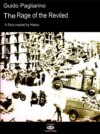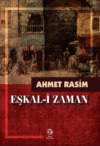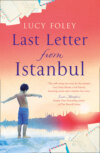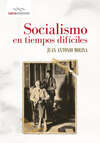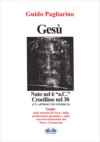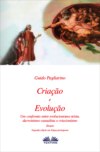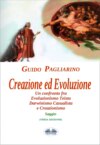Kitabı oku: «The Rage Of The Reviled», sayfa 4
According to the nameplate beside the door of the apartment, the family’s name was Scognamiglio.
"You’re called Scognamiglio and then ...?" Vittorio had asked the young woman.
"Mariapia."
"Nice to meet you, Mariapia," he had smiled, and the worried expression he’d had on his face since he left the Police Headquarters disappeared. "I’m Deputy Commissioner Vittorio D'Aiazzo."
"... and I’m brigadier Bordin Marino," his aide had echoed, unlike his superior remaining very serious, almost condescending, evidently proud of his rank.
Although Mariapia’s face no longer looked worried, it was not happy: her dark expression had changed into sadness.
She had opened the front door with her own key, which she kept in a hemp purse inside the single deep pocket of the mouse gray skirt woven from a home-made yarn31 , held up by a belt in black matte cuoital leather32 , with a blue-colored blouse tucked into it. The young woman was wearing gray lanital socks on her feet inside two black coriacel boots33 with black rubber soles which the craftsman had made from old car tires.
As the two policemen had observed, the apartment consisted of three rooms and a corridor about eight feet wide, which ran along the entire length of the accommodation and ended at a small window without shutters. The three rooms were all to the left as you entered, and at that moment the doors were closed but, as from the position, it would seem they overlooked Via Monteoliveto. On the right when you came in, there was a balcony that flanked the corridor and overlooked and area of vegetable gardens as wide as the building and three times as deep, with a few sparse apple trees and plum trees, dense vegetable seedlings and three short parallel rows of vines: the peddlar owned that piece of too. At one end of the balcony, to the left as you went outside through the single French door in the center of the corridor, there was a wooden hut that, as guests had guessed, housed the domestic toilet.
They coud hear the sound of someone moving around in the room next to the entrance, which would turn out to be a kitchen with dining room.
"Who’s in there?" Vittorio had asked the young woman.
Without answering him, Mariapia had opened the door just a little and had slipped into the room, closing it behind her. Some incomprehensible discussion was heard, then the door had opened again, completely this time, and the girl had come out followed by her parents.
The father, Antonio Scognamiglio, had come towards the guests frowing in apprehension, his eyes looking at Bordin’s boots and his trousers with the obvious fuchsia-colored strip down the side. The manifest discomfort of the man of the house was accentuated when, a moment later, the brigadier had taken off D'Aiazzo’s jacket to return it to the owner, thus displaying the rank sewn on the sleeves of his jacket. Nevertheless, Mariapia's father was essentially an honest man. His distrust had not been caused by having something to hide from the law, but by the fact that was rooted in him since he was a child, something usual with the Neapolitan common people, a sense of great prudence, not to say distrust, towards the authorities big and small, transmitted from generation to generation in the atavistic memory of being bullied by the Birri34 and other public officials of the Bourbon kings.
The man was very small, a couple of inches shorter than Vittorio who was not tall. He had calloused hands, was thin like Mariapia and like her he had thick hair, once corvine like his daughter’s but now white, despite being only forty-eight years old. His wrinkled face contributed to making him look older just as sailors and fishermen do after years at sea and the continuous exposure to the sun and salt air; and in fact he had performed the valued profession of head fisherman on ocean-going vessels, which was still indicated on his identity card. Fourteen months earlier, however, as he had confided almost immediately to his guests to justify his being at home, he had lost his job after more than three decades on the same fishing boat, first as an apprentice, then as a finished fisherman and, finally, as a fishing master.
He had told them that he had lost it dramatically, in July 1942, when the vessel sank after being hit by a bomb from an English navy fighter-bomber De Havilland Sea Mosquito. The stylized profile, seen from below, was very well known to Italian sailors because it was posted in the ports. Antonio had been the only survivor of the slaughter because, being a good swimmer, he had thrown himself into the water as soon as he had spotted the enemy silhouette descending on the fishing boat. He had been picked up by a destroyer of the Italian Regia Marina, en route to the port of Naples, which fortunately had been passing through the area where the boat sank just ten hours later. It was still daytime, and with some more luck, the sharp eye of a first class35 sailor was standing watch and had seen the fisherman clinging to a plank of the hull of the fishing boat blown up by the bomb.
Good too, in the bad situation, had been the fact that it was summer, with sea water at bearable temperatures, and that the sinking had occurred at dawn, so the ten hours in the water had all been in daylight. After that, Antonio had got by, like many of his countrymen, with work he picked up day by day usually in the port as a docker, but only until the port facilities, already damaged by the Anglo-American bombings, were destroyed by the occupying Germans and civilians had been banned from going any closer to the sea than than 300 yards.
Unlike her sullen husband, Mariapia's mother, Concetta, had welcomed the two guests with a smile, accustomed as she was to dealing with the public for thirty years as an employee of a Lotto botega. That Monday morning, however, when she had showed up at work, she had found the place locked and a sign on the door saying Closed for bereavement; so, whether it was a matter of real grief or prudence in anticipation of turmoil in the streets, which they had been expecting for a few days now, Concetta had returned home, which was not far from the Lotto bodega as it was on Corso Umberto I fifty yards to the right of Via Monteoliveto.
She had had no trouble either going or returning because, luckily for her, the Waffen SS had arrieved to set up the checkpoint about ten minutes after she returned. Unlike her short husband and daughter, the woman was five feet six tall, a remarkable stature in those times compared to the average population of both sexes in Campania whose ancestors had endured hunger, as too quite a number of their great-grandchildren had suffered prior to the conflict and almost everyone after its outbreak. Concetta however, despite the starving war, was an obese woman. Going by her fine features and big eyes that stood out beautifully in her face which was deformed by fat, she must have been an attractive young woman; but now she looked older than her forty-four years and not only because of the flab, which wobbled under her chin even if she just moved, but because she had lost all the incisors and the two lower canines, as well as four not visible molars, teeth that she had lost before reaching forty by dint of gorging on candy and chocolates, when sugar and sweets were not almost unobtainable as they were after the beginning of the conflict.
But since the ration book – not that it was much of a deprivation – concerned only sugar, pasta, bread, flour, milk, butter, lard, oil and meat, foodstuffs sold by law in very limited quantities at political prices, she made up for the lack of candy by eating fruit, especially grapes and figs when they were in season. She bought them from the greengrocer her landlord, and generously drank sweet wine thanks to the abundant viticultural production, and therefore oenological, not only in the area but in many other parts of Italy, a Mediterranean nation which, at that time, was mainly agricultural, and as a result the sale of fruit and wine had not been subjected to rationing.
Concetta Scognamiglio was born with the widespread surname Esposito, into the relatively well-off family of a pizza maker who owned a place frequented by sailors and fishermen, which camorristi had devastated and burned down some years later because their expecations for compensation for their so-called protection had not been met. Thus the father had been forced into becoming a pizza maker for others, the mother to sewing and ironing and cleaning other people’s floors, the twelve-year-old son to work as a kitchen hand in trattorias. The eldest daughter, Concetta, who was then fourteen years old, had been lucky enough to find a job in the Lotto bodega, thanks to a relative of the owner who was a friend of her father’s.
This kind of employment was highly regarded in the working-class environment, systematic players of the 90 numbers, because the person who was behind the cash register not only took the money, but had to know the Scienza della Smorfia36 to be able to give advice on dreams and numbers. The importance of her work had provoked the ferocious defamation of two awkward spinster sisters towards the young girl. Uselessly lusting inside and elsewhere for a male, they had whispered between themselves, and had immediately spread to other ears, that chilla pezzènte senza santi ‘n Ciélo37 had only been hired because without doubt! she had agreed to do ‘e schifezze c’o prencepàle38 , an elderly widower reputed as a satyr. Those harpies were very sure of it, even if they had not personally seen copulations or any lascivious things between the old man and the young girl. It was definitely a slander, since the elderly owner had died just three months after hiring Concetta, and because the betting shop was being managed by a woman, the girl had continued to work there, appreciated by the new manager for her good work. And yet the rumor had not stopped, indeed it had been stoked by the adjunct that o' vecchio puórco39 had died because he had been overexcited by chilla purcellazza40 .
Luckily the slanderous rumor had never reached either the person concerned or her vindictive father nor, later, her sanguine husband; and in fact the bitches in heat, if they had not been fools, should have realized it themselves, finally, after the marriage of Antonio and Concetta, because in those times the premarital virginity of the bride was still highly appreciated by all. Given that the new husband had not kicked up a ruckus on the wedding night, he must have found the bride just as her mother had brought her into the world.
Mariapia also contributed regularly to the household budget as a saleswoman, the only one, at the bazaar with tobacco shop belonging to a first cousin of her father, Giuseppe Scognamiglio known as Peppino and, by some, Don Peppino. Unlike Concetta, even though her daughter had quickly become employed, no malicious words had been said about her daughter, perhaps because she was a distant relative of the owner, but certainly for two other excellent reasons: because Mariapia had such a notoriously bad temper that no gossip would ever have dared to talk badly about her, afraid of being on the receiving end of multiple slaps in the face and a flurry of kicks in the butt; and above all, because the tobacconist was reputed to be linked to the camorra.
By now the parents considered Mariapia their only descendant, even though they’d had the joy of two other children, Gennaro, the eldest, and Giuseppe, one year younger than Mariapia. Both, however, had been killed in battle or, to be precise, it was certain for the older of the two, a sailor who died at sea in 1941 in the sinking of his ship, and almost certain for the younger, because the Ministry of War had let the family know at the time that Giuseppe, a paratrooper fighting on the Libyan-Egyptian front, had gone missing in combat. Having received no news from the Red Cross that he had been taken prisoner, parents and sister were convinced that he had been killed, and since the body had not been found, they had assumed that their poor loved one had been torn to pieces and rendered unrecognizable by the explosion of a projectile.
The names of the two sons were usual in the Esposito and Scognamiglio families, handed down from ascendant to descendant: Gennaro had come from a maternal ancestor, Giuseppe from a paternal one, and not by chance the father's cousin also had the name Giuseppe, like an ancestor of the Scognamiglio. Gennaro, two years older than his sister, had become a fisherman like his father at just twelve years old, on another ocean-going fishing boat but owned by the same person, He had attended school only until the third grade and had repeated it a second time without passing the test for admission into the fourth, as at that time the course was divided into a three-year and a two-year period with examination at the end of the first primary cycle.
In 1937 he was conscripted into the Regia Marina as a second-class ordinary41 and, not long after his discharge, he had been recalled to arms at the beginning of hostilities. On March 28, 1941 he had ended up torn to pieces by a British broadside on the deck of the cruiser where he served as a gunman, during the naval battle at Cape Matapan between the Italian fleet and the Mediterranean fleet, Anglo-Australian, which was superior not only because of the thicker armor of the battleships, but because it was equipped with radar and a Navy airforce. Unlike Gennaro, young Giuseppe had been a good scholar and, being much more intelligent, he had managed to graduate as a surveyor thanks to his personal ambition, his own effort and the financial support of his father and mother who, having discovered his intelligence, had not sent him to work as a teenager.
In June 1940, when Italy had only just entered the war, he had graduated with a really great average in those times of very tight evaluations: all 7 and 8. Thanks to his surveyor’s diploma, knowing that he was close to beiing drafted, the young man had applied for admission to a school for trainee reserve officers and had been accepted. Promoted to aspiring officer at the end of the course, after three months of service in a regiment of the Engineers he had been elevated to second lieutenant, as per regulations, and had asked to attend the Parachute Training Center of Tarquinia with that rank, having considered the extra money paid to those specialists. After completing the second military school, he had been incorporated into the 185th Folgore Parachute Division, formed specifically for the occupation of the island of Malta but, as the events of war unfolded, it had been senselessly used from July 1942 as a simple infantry unit in North Africa. In the Libyan-Egyptian desert Giuseppe, who had risen to the rank of lieutenant, had been lost during the Second Battle of El Alamein fought between the Italian-German and British troops.
Concetta had transformed the bedroom shared by the two boys into a domestic chapel, filled with candles and statuettes of the Madonna, San Gennaro and other illustrious saints, and photos of the two guaglio' 42 . There were very few snapshots, but were printed in many copies put everywhere, even on the two beds. The mother kept the room locked and entered it only to dust every day and pray there early in the morning and after dinner, sometimes with her husband who, although not being a religious man, whispered something and grumbled something else in memory of the two, independentaly from her Hail Marys and the Eternal Rests. The daughter never went in there, she did pray for her brothers’ eternal peace, but alone and mentally when it came spontaneously to her.
Mariapia, not ugly, not beautiful, despite being of petite build overflowed with goodwill and vigor and had been – but no longer for the reason that will be discovered – a cheerful and satisfied girl. As an independent spirit, it had not been unusual for her to be absent from home without telling her parents, at the beginning of the war only on holidays and during the day. Until the conflict, she would be away until the first hours of darkness when there were festivals, first the one in Piedigrotta, the night between September 7 and 8 and for San Gennaro on the 19th of the same month. Those freedoms of hers had been fostered by her amazement at the beauty of the world and by the spirit of discovery that filled the young woman’s soul. In essence, they consisted of wandering around Naples alone discovering fresh things and meeting new people.
She had never stayed out for reprehensible reasons and not only from the point of view of the law but, considering the narrow mentality of those years for which even a kiss on the mouth was a sin, not for amorous reasons either; on the contrary, she had not had a single romantic relationship, feeling in her heart that only the right man would make her fall in love and take her to the altar. She was certain that when she had met her man she would have had no doubts and it would have been love forever: since adolescence, she had been immersed, in substance, in that feeling that is improperly called romantic, common to the young girls of yesteryear.
Mariapia's parents had not hidden from Vittorio and Marino that their daughter had not returned home at the usual time, around 7.00 pm, on the evening of September 26, Sunday, when the tobacconist had been open for the biweekly festive shift to which the State monopoly shops were obliged, and not even after the curfew of 9.00 pm, with her bed intact in the dining room kitchen where she still slept despite the fact that her brothers were no longer there. In the beginning Antonio and Concetta had thought that her failure to return at the usual time was due to working longer and had not worried about it too much. They had started worry only around 8.30 pm. At the curfew, later, they had begun to seriously fear some tragedy.
Being officially a fisherman, her father was among the people authorized to circulate during curfew hours, given that the night trawlers went out and returned before dawn. Since after September 8 it had been forbidden for anyone to go near the shore, not only inside the port but anywhere in the city, the owners had pulled up their boats on the beaches outside Naples. From there they could still legally go to sea. It was their fish that arrived in the city's markets.
On the evening of September 26 therefore, shortly after 9.00 pm, Antonio had decided to go out and go to his cousin's nearby tobacconist shop, hoping to find his daughter there or, if not, to at least have news of her from his relative who lived behind the shop. With the identity card that still declared him a fisherman in his pocket, the parent had gone to the store and had knocked on the middle shutter, the front door, of the three in front of the large outlet covering the windows. Nothing, silence and no light at all in the store. Back home, he had continued to wait with his wife, in the hope that his daughter would arrive at any moment.
At about 10.00 pm the couple had gone to bed with the intention of staying awake, but around midnight, first the husband and then the wife had unwillingly succumbed to sleep. She was the first to wake around 7.30 in the morning and when she saw that her daughter had not returned at all, she had shaken Antonio very agitated. Just to put something hot in the stomach, they had thrown down 'a schifezza, as Naples called the broth of chicory which was a substitute d'o café, which Concetta prepared with the Neapolitan coffee machine. They had immediately started discussing whether to go out and look for their daughter and ask around with acquaintances, starting with the relative Peppino, or whether, apart from the cousin that they still had to ask, to let it go, knowing full well that it would be the classic search for the needle in the haystack. Moreover, feeling that they would risk their lives going around Naples, not only because of the rumor of impending disorders that had been circulating in the streets and alleys for days, but above all because, around 8.00 am that morning, they had heard rifle shots and volleys of assault rifles and machine gun coming from not far away.
The couple could not know that it was the clash on Via Medina in which Mariapia was taking part. Although the shots had continued to echo, at a certain point Concetta had decided to go out to work afraid that, otherwise, she would lose her job; but she intended, as she had told her husband to reassure him, to move cuòncio cuòncio assaje43 ; and since she had to go past the cousin’s tobacco shop, she would ask him herself for news of Mariapia. She had found the shop locked, as indeed were many others that morning. She had knocked hard on the shutter of the entry for a long time and then on the one over the two windows, calling out so he could recognize her voice. But no one had opened up to her or, at least, no one had answered her. She had then asked the elderly owner of the place next door, a bicycle repair workshop, Gennarino Appalle who was the only other resident of the low building where the two businesses were located. The technician had opened the door a little when he heard the knock, and when Concetta asked about Mariapia he had reminded the woman that it was a Monday and that, therefore, the day before was a Sunday, sissignora, and he had been closed you understand. Worried, the mother had gone on towards the Lotto bodega feeling sorely disappointed and when she found it locked had returned home.
When the couple had finished reporting this to the two policemen reliving all the past hours of anguish, which had been evident from their agitated gestures, the valves of emotion had finally opened and they had begun to reproach their daughter harshly:
Antonio had started dramatically: "Mariapi', tu si' sèmpe 'a dannazione nuósta a fa' sèmpe senza cunzìglio quanto vvuoi tu! Uuuh! Ooh! uh!"44
The mother had followed in a heated tragic tone: "Uhe', Mariapi', tu accidi 'a màmma tua 'e crepaccore!" 45 and with such a sorrowful expression on her face that, in comparison, the classic mask of tragedy was all merriment. Unfortunately for the good effect the woman had wanted, her mournful grimace had been rather spoiled by the notable flaccid double chin she had, which had trembled like a pudding, that calorie bomb with cream that she would have so willingly prepared and eaten for breakfast, if only she could find plenty of sugar, cream and eggs somewhere.
Mariapia was not as young as she appeared because of her still almost childish features, her five feet two and a skinny little body: she was the same age as Vittorio, and had turned twentyfour on February 12. So she didn’t take it in the least, her cheeks had gone red and she had replied sharply: "Mammà, papà, I have been an adult for a long time! I am a woman and you have to respect me!" She had spoken in Italian so her two companions in ams would understand too. Vittorio would actually have understood anyway, as he knew Neapolitan which, at that time, even the bourgeoisie used to speak at home and, when necessary, with strangers. Not Marino Bordin though, despite having been stationed in Naples for a couple of years, because his father was Venetian and his mother had grown up in Venice.
The young woman, however, expressed herself preferably in Italian even outside the home, and did so correctly: she was more educated than her parents and intelligent like her younger brother. After elementary school she had successfully attended a three-year complementary school for introduction to commercial work, and had obtained her diploma with honors. It had also been because of that small qualification that she had been taken on in the tobacconist shop belonging to her father's relative.
Ücretsiz ön izlemeyi tamamladınız.
